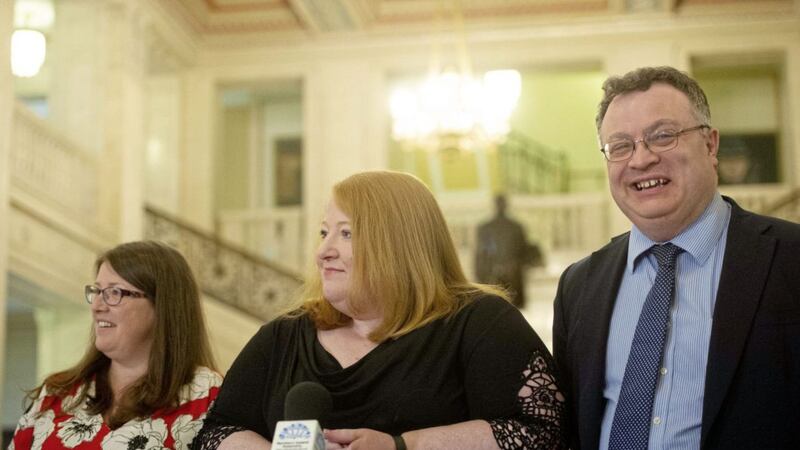REPORT the story; don't become part of it. That's what journalists used to be taught. I am not a journalist, but I can appreciate the wisdom.
The truth is I didn't vote for Brexit, as recently reported (fake news?). I voted to remain but confessed to impure motivation in believing that Brexit would force a debate and a realignment of relationships that had already worn thin and will not hold going into the future.
It was predictable that Brexit would force strong political and identity issues to the surface.
It would draw them into focus and make them central to politics because they were already there.
Brexit didn't create the divisions between the north and south of Ireland nor those within the north itself.
Neither did it create the tension between Scotland and England. It is only a few years since the referendum on Scottish Independence and even thought the remain vote won by a small enough margin the Scottish National Party continues to have nearly more seats in government than all the other parties put together.
England is split down the middle between Leave and Remain. Those divisions go back a long way before Brexit and are analysed as a mixture of economic inequality and post-colonial loss.
There are many who think that the fundamental ideologies released by Brexit are so powerful that they have the potential to take on a dangerous and uncontrollable impetus.
The dangers range from increased violence in Ireland to civic disturbances on the streets of Britain.
Those are valid fears but are also further confirmation of the divisions that were already there and confirmation of their powerfulness.
Committed Brexiters may have the right to argue that there will be a buoyant economy, but they don't have the right to argue that economic prosperity alone can address and solve the underlying divisions of these islands.
The real danger is the nature of politics. Its inherent tendency to be ad hoc and selfish does not make it the most adaptable or sophisticated when faced with deep and complex issues.
Politics is also dependent on the character of those who occupy key positions and their willingness and ability to address difficult and long-term issues that may have little or no impact on their immediate political prospects. Which is a real challenge to the bulk of the political parties.
Concentrating on this island alone throws up some such interesting dilemmas.
Sinn Féin's primary mission is unity but, when it comes to the border poll and the increasing unity debate, the party should take a back seat because it so deeply antagonises those it wishes to persuade.
Fianna Fáil, given its history and its role in the peace negotiations, are the best placed to develop the Irish arguments while also providing comfort to many unionists.
But Micheál Martin's recent speech in Glenties gives little comfort to nationalists nor unionists. The DUP and the UUP are afraid to enter negotiations about the future of this island, believing that entering such talks predetermines their outcome.
Their dilemma is that political parties who don't read and respond to the signs of the times will soon find themselves left behind. But all those arguments are well rehearsed.
Unfortunately, what is seldom discussed is the role of the rejuvenated Alliance Party.
Their policy on these fundamental ideologies is to remain neutral. But neutrality is not a policy; it is a blank page of paper.
The growing number of voters joining the Alliance Party can be either unionist or nationalist or neither.
The party doesn't enter the constitutional debate other than promoting 'whatever you are having yourself '.
It is akin to worrying about the quality of the curtains when the electric wiring in the house is in dangerous condition.
Alliance has now enough status and support to become an influential and moderating player in this messy but fundamental debate.









